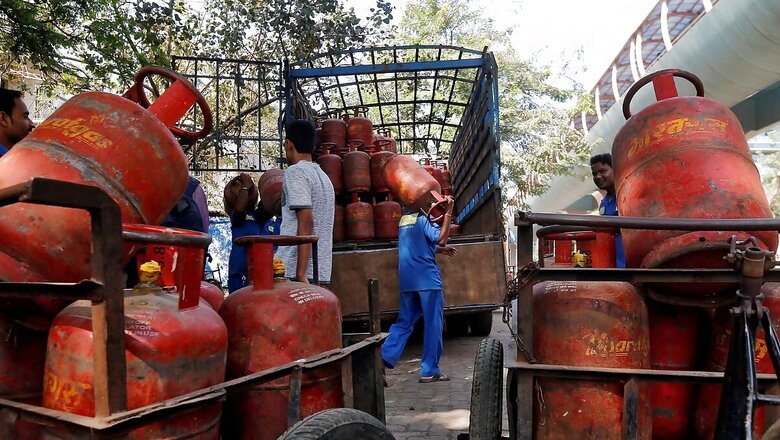
views
Shares of oil & gas companies were trading higher by up to 4 per cent on the BSE in Monday’s intra-day trade after the Government of India accepted several key recommendations made by the Kirit Parikh Committee with respect to the pricing of natural gas produced from the administered pricing mechanism (APM) fields, that are legacy fields and largely held by PSUs like ONGC.
The new regime, administered price mechanism (APM), reflects the adoption of some of the key recommendations made by the Kirit Parikh Panel, set to decide the deregulation of gas prices in India.
The domestic gas pricing will be linked with the imported crude pricing and would be at 10 per cent of the Indian crude basket. It will be revised on a monthly basis.
The formula for the new gas pricing mechanism will include a floor and ceiling at $4 and $6.5. The ceiling will be kept in force for the next two years.
Oil & Gas Shares Rise
Among the individual stocks, MGL rallied 4 per cent, hitting 52-week high at Rs 1,024.40 on the BSE in intra-day trade. Shares of ONGC were up 3 per cent at Rs 155.20, followed by IGL (2 per cent at Rs 472.70) and Oil India (up 1 per cent at Rs 257.70) on the BSE in intra-day trade.
What Investors Should Know?
The government had constituted the Kirit Parikh Committee to look into the gas pricing mechanism, as Administered Price Mechanism (APM) prices had risen to $8.6 per mmBtu in the October 2022- March 2023 period, making CNG costlier than dirtier alternative fuels in few cities, Motilal Oswal Financial Services said.
Post the development, CGD companies have announced a cut in CNG and PNG prices over the weekend. Analysts believe this could help city gas distribution companies ramp up volumes going ahead.
“While the recommendations will help CGDs (city gas distributors) reduce their input costs in the near term, we do not expect margin accretion for CGDs as the benefit is expected to be passed on to consumers. Moreover, the implementation of the floor price will increase the gas cost for CGDs in the long run, as under the previous gas pricing regime, APM gas prices were higher than $4 per mmBtu in only three out 16 periods due to high weightage of cheap Henry Hub gas,” it added.
Motilal Oswal has retained its ‘sell’ rating on IGL as the threat posed by EVs to the long-term growth potential of the company poses a huge risk to its valuation. It has a ‘buy’ call on MGL due to its attractive valuations while Gujarat Gas remains its preferred pick among CGDs owing to its higher industrial exposure.
Experts also said that the new gas pricing mechanism is a significant positive for producers as it removes a multi-decade overhang on long-term returns.
After the new gas pricing formula is announced, CLSA has a ‘buy’ recommendation on IGL, MGL and GAIL India. Despite the price cuts, calculations suggest attractive spot unit margin for MGL and IGL, it said while adding that the discount of against Diesel has risen to 30 per cent which brings back pricing power.
Jefferies has maintained IGL as its top pick with a target price of Rs 540 and has a ‘hold’ rating on MGL and GAIL shares and ‘underperform’ stance on Gujarat Gas. The foreign brokerage firm sees city gas companies benefiting from feedstock cost relief.
GAIL gets Rs 1,100 crore annualised saving in LPG feedstock cost, Jefferies said. The brokerage firm has upgraded FY24 EBITDA estimates for IGL, MGL and Gujarat Gas by 20 per cent, 19 per cent and 6 per cent, respectively.
Read all the Latest Business News here


















Comments
0 comment